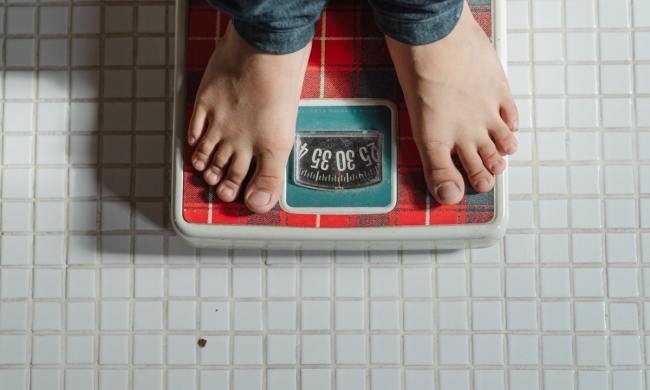For years, you’ve been your child’s hero and confidant. You were the coolest person in your happy kid’s life and their go-to friend in the good times and the bad — until one day, everything you said was wrong and arguments became the main form of communication. If your child rolls your eyes more times a day than you can count and your patience is already hanging by a very thin thread, then let us welcome you to the teenage years. The transition from childhood to adulthood is a tough one for both kids and parents alike. But with lots of love, discipline and coping techniques you can strengthen your parent-child bond during this time. Here are our best tips to help you not only survive your child’s teenage phase but even learn to cherish it for the growth it represents.
Practice compassion
As parents, we are often so involved in our “real” problems that it can be easy to overlook or disregard your teenager’s problems. Though the things that trouble them may seem trivial as compared with adult financial responsibilities or professional issues, this doesn’t make your child’s worries any less real.

Whether they’re preoccupied with friends, social media or school, teenage problems are equally important and deserving of your understanding. Take the time to talk to your child about what worries them and show empathy for the difficulties that they face.
If your kid seems reluctant to share their concerns, it’s always a good idea to be the first one to open up the conversation. Tell them about some of the problems that you deal with and ask for their opinion. Just be sure to share wisely and avoid causing distress in your child. The problems that you choose to share must be relevant to the issues that your teenager is going through and shouldn’t cause anxiety for their well-being. Use your own judgment, and find a balance between being open and oversharing.
Make an effort to bond
Though it may seem like your teenager is miles away from you these days, the reality is that they’re still the same child who snuck into your room in the middle of the night and thought you were stronger than any monster under their bed. There are many simple activities that you can still enjoy together. A movie, craft or a good song are all little moments that you can share with your child.
If a song reminds you of something or a movie takes you back to your own teenage years, these are all opportunities to start a conversation that can help you bond with your child. You’ll soon realize that you have a lot more in common than you think.
Exercise together
Working out is a fantastic way to connect with your teenage child. Arguments are less likely to occur when you’re jogging, kicking a ball around or swimming in the pool. Physical activity is a great mood enhancer, and it doesn’t require much conversation. But don’t be surprised if you notice that your teenager starts to open up while you exercise. Be prepared for them to start talking more than they have in a while.
Listen more than you talk

Once your teenager starts to open up, it’s your time to be quiet and listen. As simple as that. Sharing their thoughts and ideas isn’t always easy for them. They’re often afraid that you’ll pass judgment or take these as opportunities to lecture them.
But if you want to have more of these special moments with your child, you must resist the temptation to give your opinion before your child is done talking. Once they’ve expressed themselves and gotten their feelings out, it’s your turn to share.
At times, it can’t hurt to ask if they want your opinion before you let them know what you think. Assuming that all is relatively well and no one is at risk, it’s a good idea to check in with your kid and see if they want to know your thoughts. After all, there have probably been plenty of times when you only vented with a friend without looking for their opinion or approval.
And if your child does accept your opinion, then thank them for trusting you and be honest in what you say. Teenagers can see right through a parent who is trying too hard and always prefer your honest opinion.
Set boundaries
There is a fine line between being your child’s parent and their friend. There are moments for each, and it’s much easier for both parties to understand the difference when expectations are clear. When rules are in place and they don’t change from one day to the next, there’s no room for disappointment. Your child knows what their responsibilities are, and they know what happens if they break the rules or fail to fulfill their duties.
Punish appropriately
Just because your child is growing and may even be taller than you at this point, it doesn’t mean that they get to do whatever they want. Their actions still have consequences, and you’d be doing them a disservice if they don’t learn this from you.
Having said that, it’s also important to make sure that punishments are in proportion to the offense. If necessary, take time to figure out what is the right consequence. You may discuss it with your partner or even with your child. Once the punishment has been set, make sure you follow through.
Set the example
As a parent, it’s very easy to get frustrated, especially after you’ve asked them to change their behavior many times but it seems to go in one ear and out the other. However, you are the adult here and should set the example of what is an appropriate reaction.
Bursting into anger is not the way to go, especially with a teenager who has no shortage of attitude. If you stay calm and collected, you will be showing them the proper behavior rather than just telling them about it.
If this is difficult to do, take five minutes or hours! It’s OK to take time to process information and assess the situation.
Not so long ago, you were a teenager yourself. But for some reason, when our children reach this age, we easily turn into our own parents. That’s because adolescence is a difficult phase to process. With all the hormonal changes and your child growing before your eyes, it’s OK to struggle. The best thing you can do as a parent is embrace the change patiently, communicate with your child and make sure they are safe. And remember, this too shall pass.


